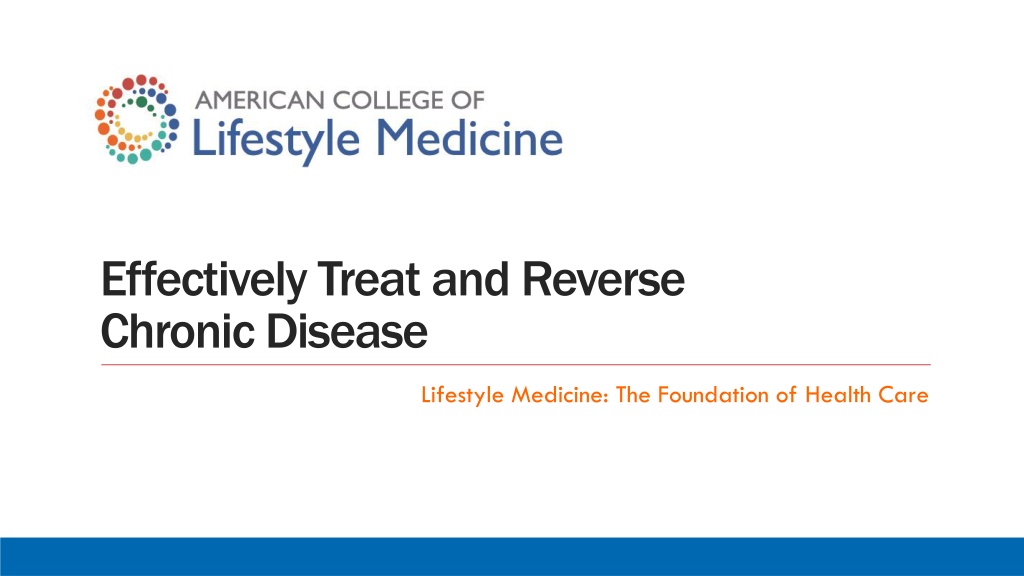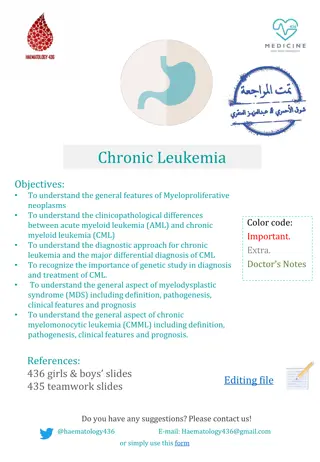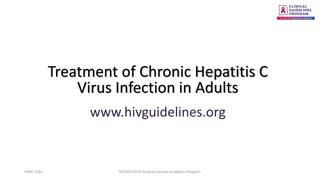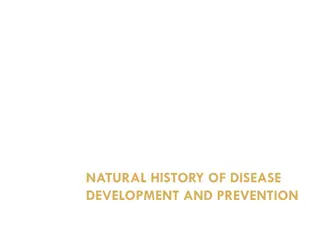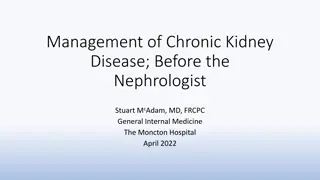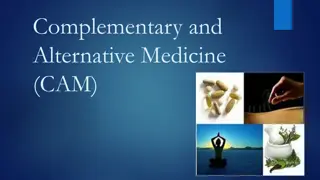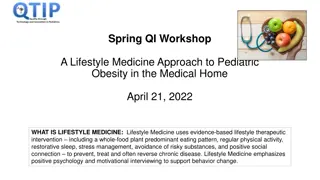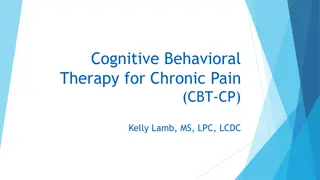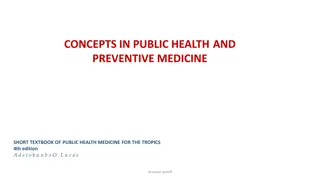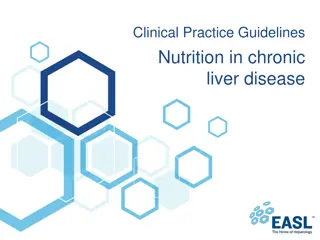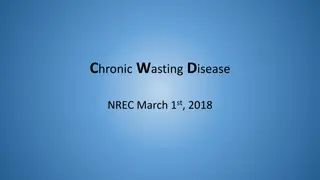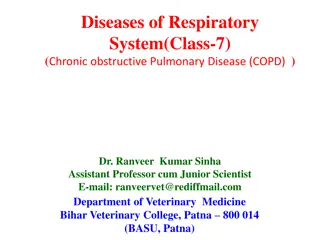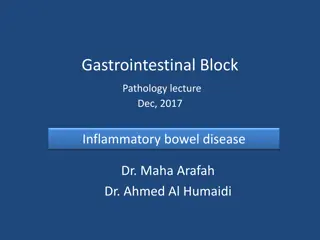Lifestyle Medicine: A Foundation for Treating Chronic Disease
Lifestyle medicine focuses on using evidence-based lifestyle interventions to treat chronic conditions such as cardiovascular diseases, diabetes, and obesity. By emphasizing whole-food, plant-predominant eating patterns, physical activity, stress management, and other key pillars, lifestyle medicine aims to address the root causes of illness and promote overall health. Clinical guidelines support lifestyle changes as a primary defense against chronic conditions, highlighting the importance of nutrition education and plant-based nutrition in preventing and managing diseases.
Download Presentation

Please find below an Image/Link to download the presentation.
The content on the website is provided AS IS for your information and personal use only. It may not be sold, licensed, or shared on other websites without obtaining consent from the author.If you encounter any issues during the download, it is possible that the publisher has removed the file from their server.
You are allowed to download the files provided on this website for personal or commercial use, subject to the condition that they are used lawfully. All files are the property of their respective owners.
The content on the website is provided AS IS for your information and personal use only. It may not be sold, licensed, or shared on other websites without obtaining consent from the author.
E N D
Presentation Transcript
Effectively Treat and Reverse Chronic Disease Lifestyle Medicine: The Foundation of Health Care
Lifestyle medicine is a medical specialty that uses therapeutic lifestyle interventions as a primary modality to treat chronic conditions including, but not limited to, cardiovascular diseases, type 2 diabetes, and obesity. Lifestyle medicine certified clinicians are trained to apply evidence-based, whole- person, prescriptive lifestyle change to treat and, when used intensively, often reverse such conditions. Applying the six pillars of lifestyle medicine a whole-food, plant-predominant eating pattern, physical activity, restorative sleep, stress management, avoidance of risky substances and positive social connections also provides effective prevention for these conditions. What is Lifestyle Medicine? Based on strong evidence and research Highly effective better outcomes and lower cost Addresses the root-cause of disease Team-based care model with patients as active partners
Lifestyle medicine focuses are the conditions that consume 90% of healthcare visits, hospitalizations, and costs
Lifestyle Change as First Line of Defense Clinical guidelines state that diet and physical activity changes are a critical first line treatment for many chronic conditions (e.g., diabetes, obesity, hypertension), often before any medication is prescribed. This is reinforced by leading national and international organizations. Lancet Commission
Whole Food, Plant-based Nutrition While there is a wide spectrum of dietary patterns, diets that include an abundance of whole and minimally-processed plant foods are preferable. Extensive scientific evidence supports the use of a whole-food, predominantly plant-based eating pattern as an important strategy in the prevention of chronic disease, treatment of chronic conditions and, in intensive therapeutic doses, reversal of chronic illness A primarily whole-food, plant-based eating pattern promotes overall health by increasing the intake of minimally-processed, nutrient-dense, fiber-rich, antioxidant-rich foods and beverages and decreasing intake of saturated and trans fats, refined carbohydrates, processed oils, added sugars, sodium, and chemical contaminants. By its nature, this eating pattern also lowers calories. For the treatment, reversal and prevention of lifestyle-related chronic disease, ACLM promotes eating a variety of minimally processed vegetables, fruits, whole grains, beans, legumes, nuts and seeds.
Lifestyle Medicine and Food As Medicine ESSENTIALS Course Bundle This Course Bundle provides a foundational, evidence-based introduction to the field, focusing on nutrition education for the prevention and treatment of chronic disease. Introduction to Lifestyle Medicine module (1 hour) Food as Medicine: Nutrition for Prevention and Longevity module (3 hours) Food as Medicine: Nutrition for Treatment and Risk Reduction module (1.5 hours) Member price: Physician/Doctor: $175 Non-Doctoral Health Professional Member: $150 Student/Trainee Member: $95 CME Credits 5.5 AMA PRA Category 1 Credit Non-member price: $220
Learning Objectives Review the current challenges in nutrition research and the challenges of disseminating accurate nutrition information to the public. Explain national and global nutrition recommendations and basic nutrition principles. Distinguish differences between health-promoting and health-harming foods. Describe the dietary pattern recommended by the American College of Lifestyle Medicine for disease prevention, treatment and reversal. Apply the concept of the dietary spectrum when making nutrition recommendations. Apply nutrition therapy scope of practice. Review the scientific evidence of popular diets.
Learning Objectives Describe dietary patterns that have been shown to be effective in the treatment and risk reduction of common lifestyle-related chronic diseases Discuss how diet behaviors impact chronic disease development and progression Identify ways in which different macronutrient sources may contribute to disease progression or improvement Explore basic counseling strategies for dietary behavior change
Learning Objectives Define lifestyle medicine. Discuss the importance and timeliness of lifestyle medicine. Review evidence and current endorsements and guidelines for lifestyle medicine. Illustrate six key interventions to treat lifestyle- related chronic conditions. Explore unique components of a lifestyle medicine practice. Describe opportunities to train and certify in lifestyle medicine. Discuss the emerging priorities for lifestyle medicine.
